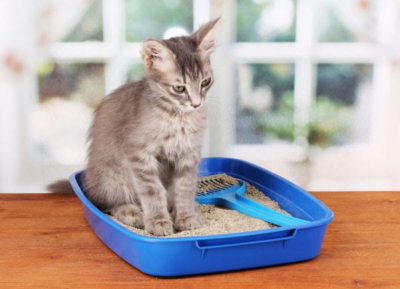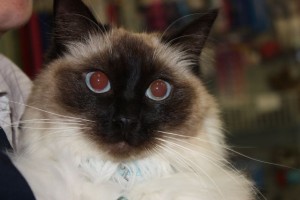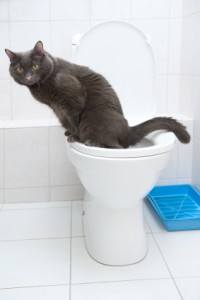
A ‘suitable’ toilet for a cat is in an area that is quiet yet easily accessible and away from the pet’s food and water. Cats that use litter trays often develop a preference for a particular type of litter and if you switch them to another sort when they are older they may not use the tray. Generally cats prefer the non-scented clumping litter without a liner. Ensure you clean the trays with hot water or mild non-scented detergent weekly and scoop twice daily. Trays need to be 1.5 x the length of the cat. Some cats like a covered tray, but many don’t.
For multi-cat households you should always have one more litter tray than you have cats. So two cats will require three litter trays, placed in different parts of the house as each cat needs its own toileting area. Toileting in the same area can cause chronic stress to cats. Beware of the situation where the cat has to negotiate other cats, a dog or family traffic to get to the litter tray. A scary event in the tray can be enough to convince them to find a safer alternative that may not be acceptable to the humans in the household. Cats can also mark territory by spraying or urinate out of the box as a result of a medical issue. If your cat’s not using their toilet, give us a call and we will help you get to the bottom of the problem.
Whenever cleaning litter trays wear gloves and pregnant women should avoid cleaning litter trays due to the possible risk of toxoplasmosis which is a parasite that can be found in cat faeces.


